Who is Ben Crump? ‘Black America’s attorney general’ on justice, equality and accountability
- Oops!Something went wrong.Please try again later.
- Oops!Something went wrong.Please try again later.
- Oops!Something went wrong.Please try again later.
Civil rights attorney Ben Crump is a key voice many Black Americans have come to rely on far beyond police brutality cases – from racial discrimination class-action lawsuits against Google and Wells Fargo to cases arguing that Johnson & Johnson knew its talcum powder caused ovarian cancer and that rapper Travis Scott and Astroworld festival organizer Live Nation are liable for a concert stampede that killed 10 and injured hundreds in Houston in 2021.
In the past few years, he also has taken on the U.S. government on behalf of Marines who developed breast cancer linked to toxic tap water at Camp Lejeune in North Carolina, as well as a Florida amusement park ride operator after 14-year-old Tyre Sampson slipped from his seat and fell to his death from a 400-foot-tall ride. Crump and his co-counsel also won a $411 million verdict on behalf of a motorcycle rider left partially paralyzed after crashing into a truck that had its lights off while stopped on a Florida highway.
Still, most Americans who recognize Crump, 53, likely know him for his work on cases involving excessive use of force by police officers or vigilantes claiming “stand-your-ground” defenses. He’s advocated for the families of Ahmaud Arbery, George Floyd, Andre Hill, Breonna Taylor, Daunte Wright, Joshua Wright and others he said suffered wrongful deaths.
Most recently, Crump made national headlines standing alongside the grieving mother of Tyre Nichols, a 29-year-old Black man who died last month after a ruthless beating by Memphis police.
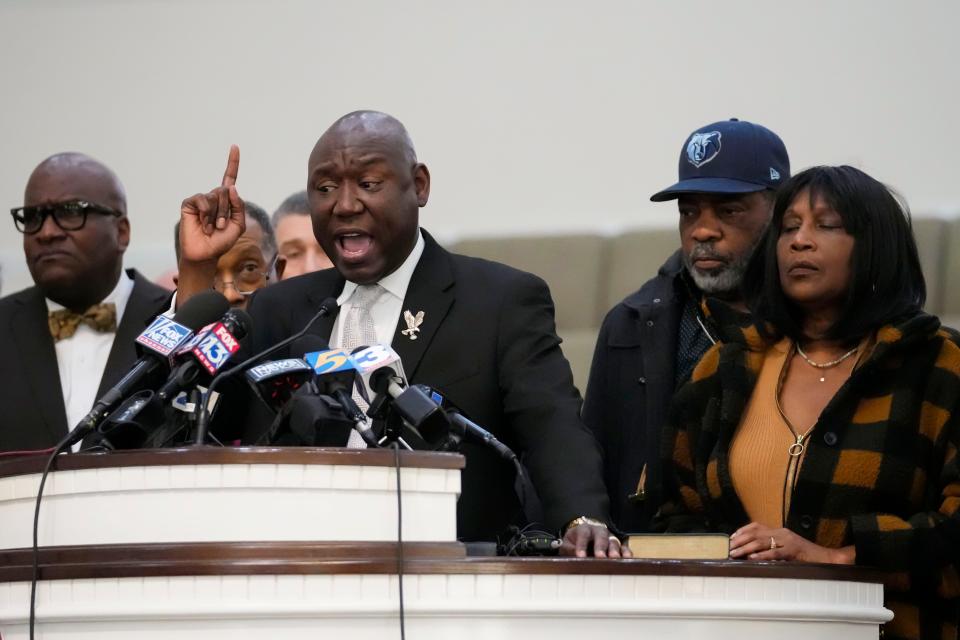
Standing alongside: Tyre Nichols' family, lawyer Ben Crump speak after seeing 'appalling' footage from arrest
Laid to rest: VP Kamala Harris speaks at Tyre Nichols' funeral
Crump said such cases make up less than 5% of his workload and less than 3% of his firm’s revenue, but they account for the majority of his appearances in the news media.
Crump, dubbed “Black America’s attorney general” by the Rev. Al Sharpton, said his goal with the civil lawsuits is to hold cities and police departments accountable until the senseless killings of Black Americans end.
“I wake up every morning knowing my mission in life is to be an unapologetic defender of Black life, Black liberty and Black humanity,” said Crump, who was named by TIME as one of 2021’s most influential people. “I don’t care how unpopular it becomes, we can never be ashamed or afraid to stand up for our people.”
Tyre Nichols' family lawyer on growing up Black
Crump’s values and positions were shaped by his environment.
“We didn’t see the police being very friendly to us when we were growing up,” he said. “They were people who would harass Black people on a regular basis.”
As an example, he recalls an incident when he was 10 years old and living in North Carolina, when he said police decided to teach one of his uncles a lesson.
“(My uncle) was one of the first ones in my little hometown to get a scholarship to go to a predominantly white university – Wake Forest University,” he said. “When my uncle came home from college, (the) police were going to show him that even though he went to college, he was still a Negro like the rest of us. We watched them beat him up right there in the parking lot of the projects. It left an indelible impact on my mind.”
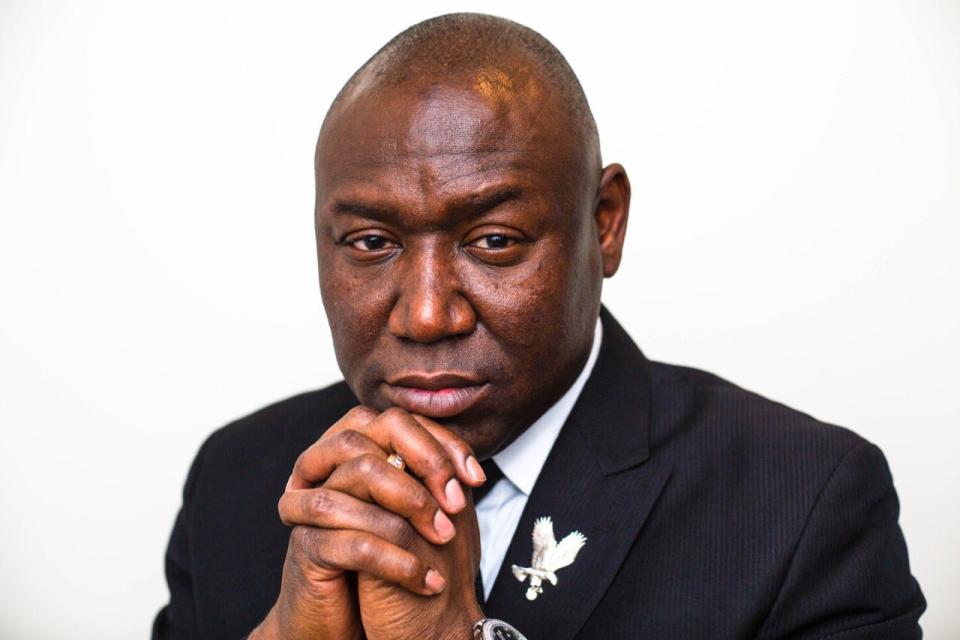
“I thought that when I grow up, I don’t want to feel helpless like we all felt watching my uncle be brutalized, literally," he said. "I remember that a lot when we work on these cases – how helpless Black people feel in the face of these injustices, and that’s why I fight so hard.”
Crump said his law firm receives about 500 requests a day seeking representation. He crisscrosses the country, partnering with other firms, to handle the cases he can. He used to work primarily in
Florida, where his practice is based. But that was before Crump became almost synonymous with “Say his name,” the refrain often yelled by protesters when police kill an unarmed Black man.
Trayvon Martin, Michael Brown, Breonna Taylor, George Floyd: cases show incremental progress
Crump rose to national prominence while representing the family of Trayvon Martin. The 17-year-old was chased and fatally shot in February 2012 by a neighborhood watch participant in Sanford, Florida, as the teen was walking home from a convenience store. Crump said he made a point of publicizing that Martin had gone to the store to buy Skittles and a can of Arizona iced tea because it was important for the public to see the youth as just that – a typical teen.
“To have a chance at justice, you have to be able to humanize Black people and marginalized people of color. If you can’t humanize them, then it would demonstrate to society that these Black people are not worthy of your respect, or your consideration or your professionalism – and worst of all, that they are not worthy of your humanity,” he said.
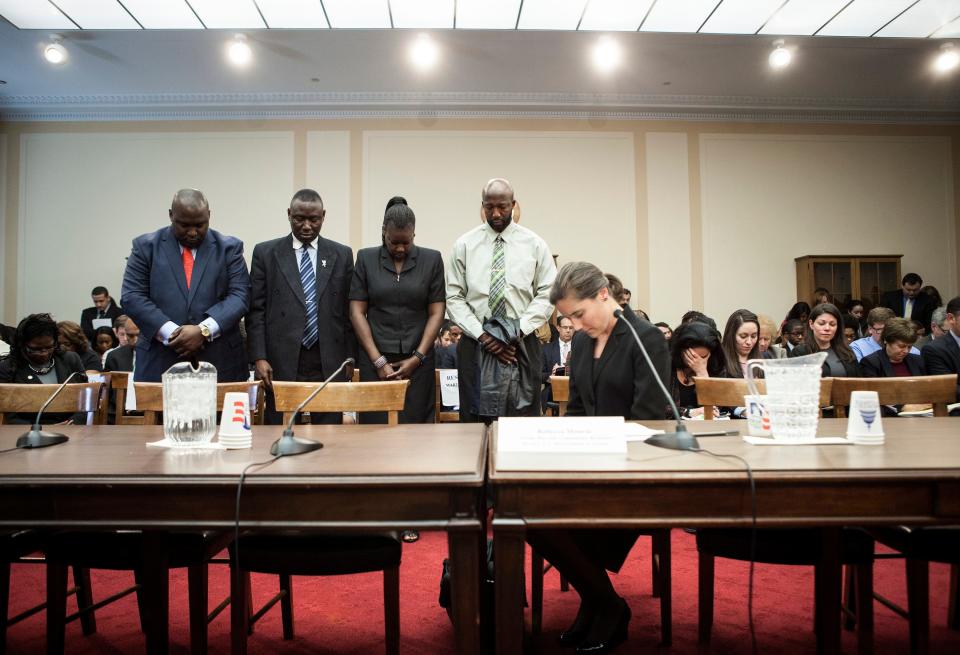
Martin’s killer was acquitted of a second-degree murder charge after claiming self-defense. He said he confronted the teen for looking “suspicious.” The homeowners association in the neighborhood agreed to settle a wrongful death claim with Martin’s parents for more than $1 million.
Martin’s death and the acquittal of his killer sparked the Black Lives Matter movement, and Crump became the go-to attorney in dozens of wrongful death lawsuits around the country. Many of the high-profile cases he and his co-counsel negotiate are settled without trials.
Michael Brown: It's been 5 years since Ferguson. Are racial tensions even worse now?
Andre Hill: Columbus agrees to pay $10M to family of Andre Hill, an unarmed Black man killed by police
Breonna Taylor: Feds charge 4 Louisville police officers in Breonna Taylor shooting
George Floyd: Former Minneapolis police officer pleads guilty to manslaughter in George Floyd’s death
Tyre Nichols: Case reignites conversations among lawmakers on federal police legislation
Michael Brown’s family received a $1.5 million settlement from the city of Ferguson, Missouri, after the 18-year-old was shot six times by a police officer; Hill’s family settled for $10 million with the city of Columbus, Ohio, after the unarmed 47-year-old was shot four times by an officer outside a garage with only a cellphone in his hand; Taylor’s family received $12 million from the city of Louisville, Kentucky, after a no-knock warrant resulted in the 26-year-old’s fatal shooting. And the family of Floyd received a $27 million settlement from the city of Minneapolis.
Crump said each case represents incremental progress. He hopes financial consequences for governments and agencies lead to policies that save Black lives and hold police accountable.
Black life lessons on education and work
As a Black man born in North Carolina, with bachelor’s and law degrees from Florida State University, Crump recognizes that the violence and sorrow experienced by the victims and families he has served could have just as easily happened to him. Or to the nephews he and his wife, Genae, helped raise. Or to his preteen daughter, Brooklyn, who must share her father with families across the nation.
He recalls life lessons his mother, Helen, taught him at a similar age. “She said, ‘Life ain’t fair. Life is hard; you make it fair by what you bring to the table, and if you don’t bring anything to the table, don’t expect anybody to let you sit down at a table,’” he said.
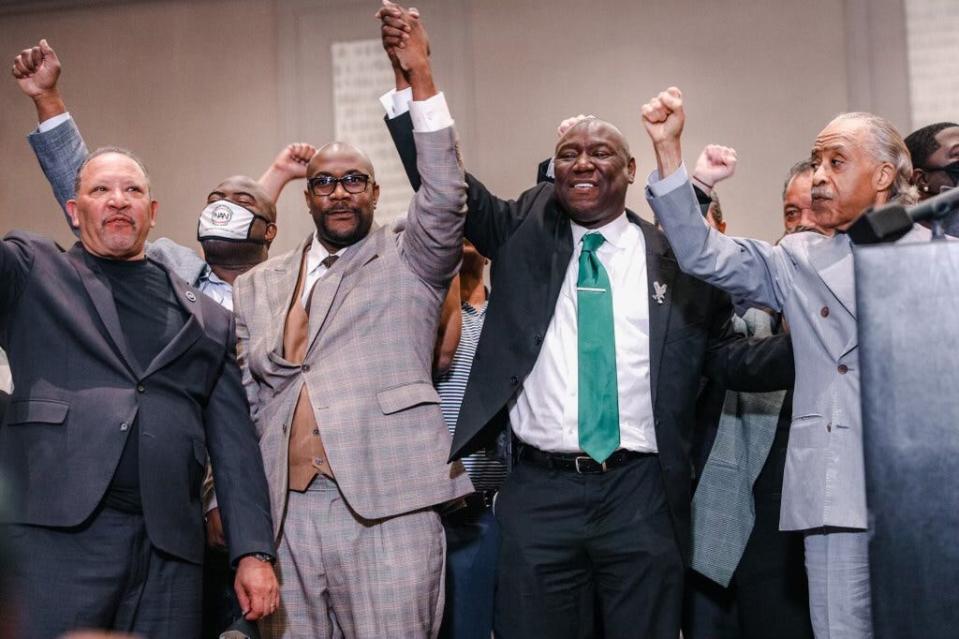
Crump credits his mother and grandmother, Mittie Cordell, for giving him direction. His work ethic, he said, comes in part from his mom. When he was growing up, she worked at a hotel in the morning, cleaning bathrooms and washing laundry. She had a second-shift job at a shoe factory.
“Like most Black women, she was able to keep food on the table, a roof over our heads and hope in our hearts,” he said. A message instilled during his upbringing was “to work hard to be able to have an impact on your life, in your family and in your community.”
But he said his grandmother was his true inspiration. “She was just a brilliant woman, even though she only had an eighth-grade education. She had that common sense many of our ancestors employed to deal with life. I remember her taking out the subscription to the local newspaper and me being seven or eight years old trying to read the newspaper with her. We would be sounding out words and putting them in context. She was not only teaching me the value of education and intelligence, but she was showing me that there was a bigger world outside of North Carolina.”
Ben Crump on the 'constant struggle to give value to Black life'
A member of Omega Psi Phi fraternity, Crump said that it “was the highlight of (his) life” for his grandmother to see him graduate from law school and open his law practice before she passed away in 1997 at the age of 86. He adds that he has known since the fourth grade that he wanted to be a lawyer.
He often retells the story of how it was in fourth grade that, due to desegregation, he had to start taking the bus to school in the white part of town. His mother explained how Thurgood Marshall litigated the Brown v. Board of Education case that made it possible for Black and white children to attend school together. Crump wanted to be like Marshall and make a difference.
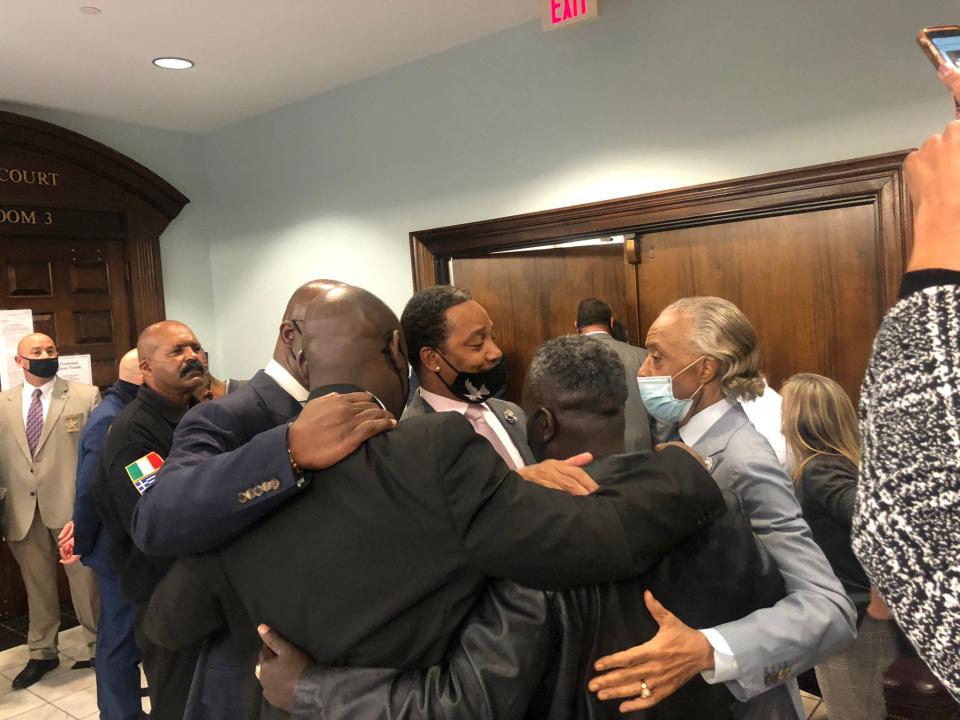
Jeff Storms, a Minneapolis attorney who has worked with Crump and attorney Anthony Romanucci on three pivotal Minneapolis civil rights cases, said Crump really cares about the families he represents. Together, they represented the families of Floyd and Daunte Wright, who was killed by a police officer in suburban Minneapolis in 2021, as well as the family of Amir Locke, another victim of a fatal shooting resulting from a no-knock warrant.
Daunte Wright: Former Minnesota police officer Kim Potter sentenced to 2 years in Daunte Wright's death
Ahmaud Arbery: Georgia dad, son sentenced to life for hate crimes in Ahmaud Arbery death
“Ben has a blend of talents that very few people in a generation cumulatively possess,” Storms said. “My continued working relationship with Ben proved what I always hoped could be true: that there are key people leading important causes who value kindness, empathy... coupled with determination and hard work.”
Though he refers to this type of work as “a constant struggle to give value to Black life,” Crump perseveres with hope.
“You know how we chipped away at slavery, how we chipped away at segregation? We will overcome this, too," he said. “The enemies of equality won’t win.”
This article originally appeared on USA TODAY: Tyre Nichols family lawyer Benjamin Crump set on saving Black lives

